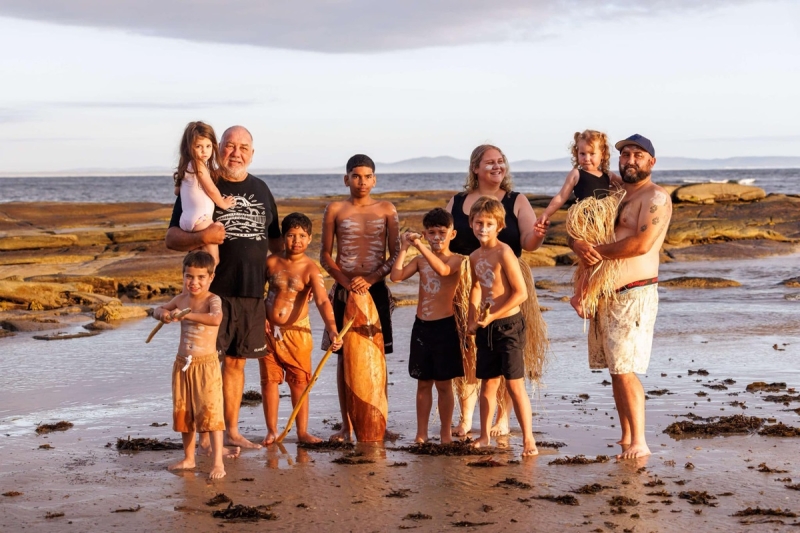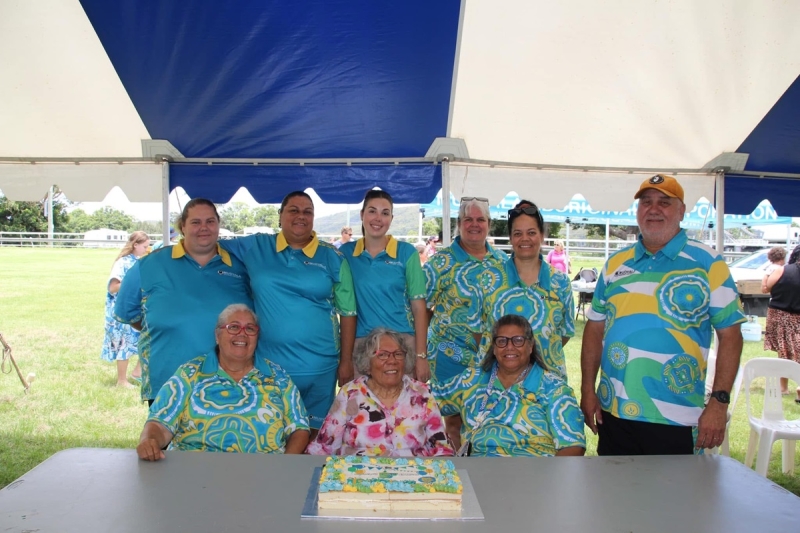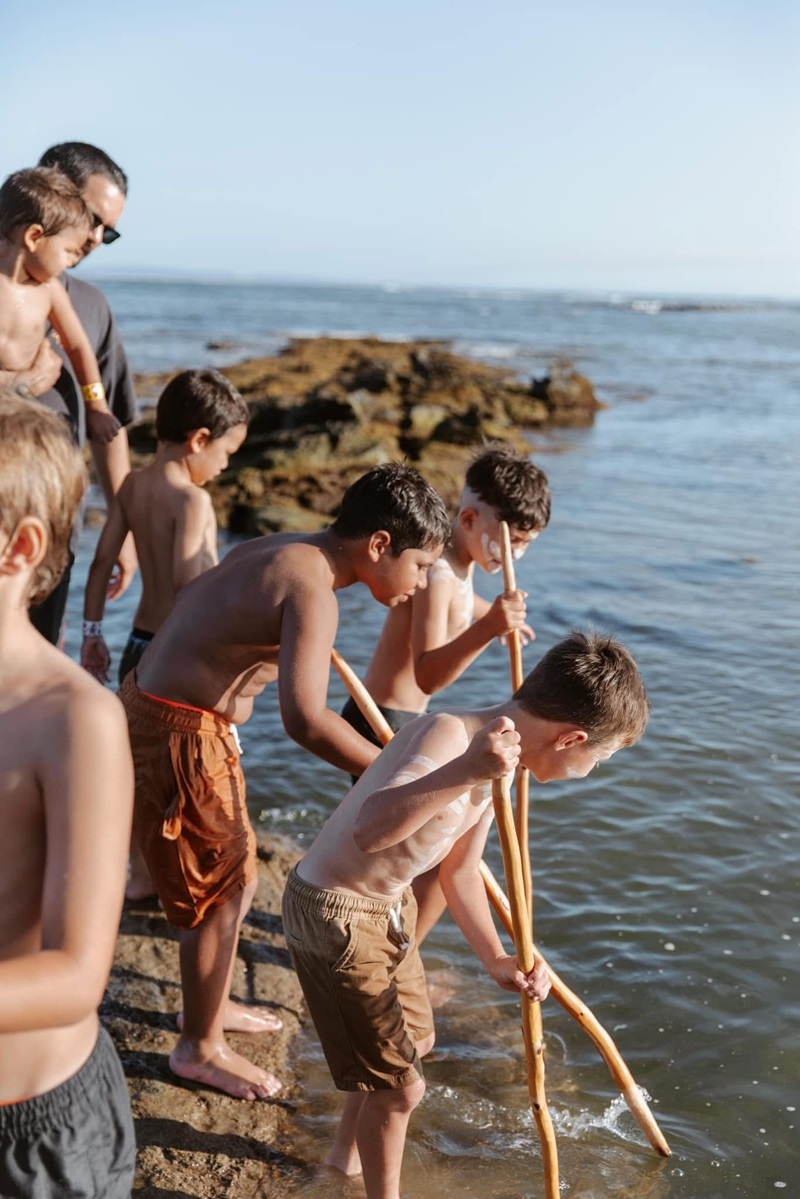A positive corporate culture gets results for community
Mudyala Aboriginal Corporation is deeply invested in getting positive outcomes for people in the northern NSW Clarence Valley region. All members of the team often put in hours outside of normal time, including volunteer hours, to support young people aged 0 to 25 and their families to connect with culture and education.

Lower Clarence Youth Christmas Party
Members rule
Mudyala started in 2019 with one grant and one contract to help improve school attendance for Aboriginal young people. Five years on, Mudyala is implementing 4 primary federal funding contracts, a few state contracts and a big philanthropic partnership. Yaegl and Bundjalung woman, Aneika Kapeen, is the founder and CEO of Mudyala. She says safeguarding the organisation has been a focus during this quick growth. One way to do this was to have firm rules around membership.
‘When we created our rule book through the ORIC template, we added a membership rule to be a descendant of my nan and pop,’ Aneika says. ‘Or, if not a descendant, they are people whose values, goals and aspirations for community align with ours: to create a better community to provide opportunities for children and youth. We were quite strict.’
Descendants of Walter and Dorothy Kapeen have the power to approve nondescendant membership applications if they deem it to be beneficial to the operations of the organisation.
– Mudyala Aboriginal Corporation rule book

Mudyala family members
The corporation is now made up of 12 members, including the 5 member-directors, who all share the same goals for community while keeping a positive internal culture at Mudyala.
‘We trust each other impeccably,’ says Aneika. ‘We have seen, over the years and board memberships, what happens in community businesses where anyone can become a member. A popularity vote can change the entire aspect of what the corporation does.’
Team cohesion is key
The reward for the Mudyala team is in contributing to better attendance rates at school and high levels of educational success for local people. They’re reconnecting children and young people with culture through stories, art, dance and language programs. Everyone benefits from the collective improvement in wellbeing.
The team of 13 employees and volunteers includes a facilitator who works with local parents, helping them with daily challenges. The team uses activities to engage at-risk youth, building pride through culture. They work often with vulnerable children and families who are struggling financially or socially.
Building wellbeing for others is intense and hard work. That’s why Mudyala has a strong focus on maintaining its own positive culture. Aneika says eliminating hierarchy and silos helps to do this.
‘We’re not like a mainstream organisation where you’re given a caseload of families to work with and you report to management. We’re very team-based – we never use the word “boss” or “manager” – we’re on the same, equal page,’ Aneika explains.
The team puts this into practice in a number of different ways. A group can come together to talk about an issue. Or they could pop a message in the private staff chat on social media. The lines are always open.
‘If someone’s having a difficult scenario, we don’t keep it to ourselves and try to problem solve alone. We sit in a group and bounce ideas,’ Aneika says.
‘Whether it's work related or not work related, we maintain open group chats, and anyone can post a message in there. Sometimes we send funny memes and things in there that we can all relate to, which gives people a boost.’

Celebrations for Mudyala's 5th birthday
Call in the trainers and mentors
As well as remaining open to each other as a team, Mudyala brings in mentors to learn self-care, managing tough workloads.
‘They teach us how to manage our time and make sure we take that time for ourselves,’ says Aneika. ‘They also teach us ways that we can and can't talk about people, for example, to never “run anyone down” – that means staying positive and always looking for a positive solution.
‘If at the end of the day we still can't find a positive solution, it doesn't mean we have stopped searching for it. It’s something that's out of our control and we shouldn't take it on personally.’
Different types of training have helped Mudyala staff to recognise the signs and symptoms of wellbeing risk in clients as well as themselves.
‘We do a lot of training together,’ says Aneika. ‘We do trauma informed workshops and “kids expressed” workshops around understanding the ways kids react and how to read their behaviours.
‘And we do training and workshops on self-care. We learn practices like taking 5 minutes in the day where you walk away from the computer and do something that relaxes you. Or recognising the symptoms of when burnout is coming for you, for example, getting jittery or your partner saying “you're not yourself”, acknowledging that and deciding to take a break for a day or 2. We try to get on top of the burnout before it gets too much.’
Policies to back up the learning
Learning self-care and knowing how to reduce burnout risk is one thing – putting it into practice requires a supportive organisation with policies in place. Aneika encourages a flexible work environment. When staff recognise signs of burnout, it’s important they feel safe to arrange time off or another self-determined solution.
‘Managing stress has been a focus, especially in the last 12 months. Quite a few staff get burnout towards the end of the year,’ Aneika says.
‘If they feel like they still need recovery time, even though we're back at work, we can discuss dropping down to 4 days instead of 5 in a week for a couple of months, then picking up the fifth day again, or whatever works with their lifestyle.’

Mudyala family members
Where there is a way to support a staff member to do the best they can, Mudyala is willing to find it. Aneika even keeps toys on hand for those times when parents are in a jam.
‘If a team member has a child with them and they can't get a sitter, they are welcome to bring their child to work, and we have toys for them to play with. Staff get done what they can. Then I find that, because they appreciate the flexibility, they'll go home and take the initiative to catch up later.’
Flexibility equals efficiency
Throughout its operations and its programs, Mudyala is about supporting one another to thrive. It’s about creating a community that isn’t afraid to ask for help, and is also willing to give it. Aneika says Mudyala will keep encouraging staff to look after their wellbeing. It’s good for people and good for the organisation.
‘Being flexible to workers is the way we get the most efficiency,’ she says. ‘If we told staff they have to be here at 9 am and leave at 5 pm, and that's the hours and it’s not flexible, we wouldn’t see the rewards we get.’
This attitude has helped Mudyala keep quality, qualified staff. The organisation is running more effectively as a result, and going from strength to strength. Plus, maintaining a positive culture in the corporation has helped the business work as a solid team, and get better outcomes for the community they serve.